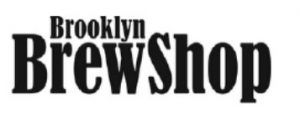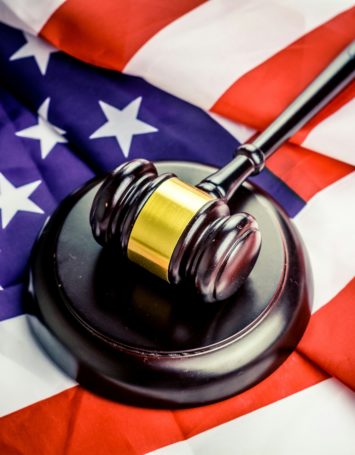Article written by Clyde Shuman
The U.S. Court of Appeals for the Federal Circuit, in a multi-issue precedential decision, affirmed the decision of the Trademark Trial and Appeal Board (the “Board”) denying the petition of Brooklyn Brewery Corporation (“Brewery”) to cancel Brooklyn Brew Shop, LLC’s (“BBS”) registration of the standard character mark “BROOKLYN BREW SHOP,” for beer making kits (Class 32). With respect to Brewery’s opposition of BBS’s application to register a stylized version of the same mark for beer-making kits (Class 32) and sanitizing preparations for household use (Class 5), the Court dismissed Brewery’s appeal as to the Class 5 goods for lack of standing. With respect to the beer making kits (Class 32), the Court affirmed the Board’s dismissal of Brewery’s claim that the mark is likely to cause confusion, vacated and remanded on the question of descriptiveness/acquired distinctiveness, and affirmed the Board’s refusal to consider geographic descriptiveness. Brooklyn Brewery Corp. v. Brooklyn Brew Shop, LLC, No. 2020-2277.
By way of background, Brewery is in the business of brewing and selling craft beer, which is sold to retailers in the U.S., including Whole Foods Market. For more than thirty years, Brewery has used the marks BROOKLYN and BROOKLYN BREWERY in connection with the advertising, promotion, and sale of its beer and beer-related merchandise. Among other registrations, Brewery owns a federal trademark registration for the mark BROOKLYN BREWERY, for beer (Class 32).
BBS was founded in Brooklyn in 2009. BBS is in the business of selling kits for making beer, as well as for wine and hard cider. Each kit contains brewing equipment, a cleaning sanitizer, and ingredients to make a one-gallon batch of a particular beer. BBS distributes its beer-making kits in all fifty states and sells its kits online and through retail stores such as Bed Bath & Beyond, Whole Foods Market, and Macy’s. Between 2011 and 2015, Brewery and BBS partnered on a number of projects, including the sale of co-branded beer making kits.
In February 2011, BBS applied to register the standard character mark BROOKLYN BREW SHOP for beer making kits (Class 32), claiming first use in March 2009. During prosecution, BBS disclaimed “exclusive right to use ‘BROOKLYN BREW’ apart from the mark,” and in October 2011, the Trademark Office registered the mark on the Principal Register.
In May 2014, BBS sought to register a stylized version of its BROOKLYN BREW SHOP mark, shown below:

Unlike the original registration, limited to beer-making kits, the new application sought registration for a wide variety of goods in Class 32, including several beers and beer-related beverages. BBS also sought registration for “[s]anitizing preparations for household use” (Class 5). The application disclaimed “BREWSHOP” and claimed acquired distinctiveness under Section 2(f) of the Lanham Act.
In late 2015, Brewery petitioned to cancel BBS’s registration and opposed BBS’s later application, both proceedings consolidated by the Board. For both marks, Brewery argued likelihood of confusion and descriptiveness, including that the BBS marks lacked acquired distinctiveness at the time of registration. For its part, BBS asserted the affirmative defenses of laches, acquiescence, and equitable estoppel based on the parties’ “substantial coexistence without any confusion” or prior challenge to BBS’s marks by Brewery. Brewery moved for summary judgment on its cancellation petition, raising for the first time a claim that the registered mark was primarily geographically descriptive. However, the Board found Brewery had not adequately pled the claim and denied summary judgment.
On August 10, 2020, the Board issued a final written decision denying the Petition for Cancellation and sustaining in part and rejecting in part the Opposition. With respect to the Opposition (pertinent part), the Board rejected Brewery’s likelihood-of-confusion claim for the Class 5 goods (sanitizing preparations). It also rejected the likelihood of confusion claim for the remaining Class 32 goods (beer-making kits) in both proceedings because the defenses of laches and acquiescence applied and Brewery failed to prove inevitable confusion. The Board also dismissed Brewery’s geographic descriptiveness claims as not adequately pled and held that Brewery failed to establish that BBS’s marks were merely descriptive.
On appeal, the Federal Circuit initially addressed BBS’s argument that Brewery lacked Article III and statutory standing to appeal the Board decision dismissing the Opposition for the Class 5 goods (sanitizing preparations). The Court noted that Brewery, as appellant, was required to “supply the requisite proof of an injury in fact” to satisfy Article III standing. Analogizing from its decisions in patent cases, the Court said that, to establish injury in fact in a trademark case, an opposer “must demonstrate a concrete and particularized risk of interference with the rights that flow to it from registration of its own mark, or some other Article III injury.” The Court noted that standing could be established, inter alia, by showing that if a mark is not canceled, or if an application is granted, the very registration and use of the mark would cause the opposer concrete and particularized harm. However, the Court said, “To be clear, an opposer cannot show standing by merely showing the registrant competes with the opposer and receives a benefit from an unlawful trademark.”
In this case, the Court found that Brewery never explains how granting the application to register the mark for sanitizing preparations (Class 5) would cause it to suffer an Article III injury. The Court noted that does not make or sell sanitizing preparations, which “are only peripherally related to beer-making kits, much less beer” and there was no showing that BBS’s sanitizing preparations were likely to travel in the same channels of trade as Brewery’s beer. Further, there was no evidence that Brewery would be expanding its business to include sale of sanitizing preparations. Because Brewery lacked Article III standing to oppose BBS’s application for the sanitizing preparations (Class 5), the Court dismissed its appeal as to those goods.
The Court noted that BBS “appropriately” did not challenge Brewery’s Article III standing to cancellation or oppose registration of its mark for beer-making kits, noting (inter alia) that the Board found beer-making kits are related to beer and to some extent compete with beer since they are sold in many of the same stores. The Court also did not separately address statutory standing since BBS had not raised the issue with respect to beer-making kits.
On Brewery’s likelihood of confusion claim for beer-making kits, the Court held that the Board did not commit legal error in finding that laches was available in the opposition proceeding, and its application of laches was not an abuse of discretion. Here, the Board found that Brewery’s more than four-year delay in bringing an action was unreasonable given that Brewery “was long aware of the nationwide sales of [BBS’s] beer-making kits,” noting the five-year public collaboration between the companies.
The Court also rejected Brewery’s argument that it had overcome laches by establishing inevitable confusion. The Court found that “[s]ubstantial evidence supports the Board’s finding” that the competing marks, BROOKLYN BREWERY and BROOKLYN BREW SHOP are not nearly identical, nor are the goods. The Board also analyzed likelihood of confusion under the factors set forth in In re E.I. DuPont DeNemours & Co., 476 F.2d 1357 (CCPA 1973), finding that the seventh and eighth factors (relating to evidence of actual confusion) were at most neutral. Per the Board, most of the “evidence” of actual confusion was from the time period when the parties were actively collaborating on co-branded beer-making kits.
On Brewery’s claim that Board abused its discretion in refusing to consider its geographic descriptiveness claim against BBS’s registered mark, the Court agreed with the Board that BBS was not “fairly apprised” of the, and that the claim was not tried by implied consent. The Board thus did not abuse its discretion in refusing to consider Brewery’s descriptiveness claim. The Court also rejected Brewery’s argument that the Board erred in finding that Brewery had failed to prove the registered BBS mark was merely descriptive. The Court agreed with the Board’s finding that Brewery failed to overcome the presumption of validity by proving that the registered mark was merely descriptive. As the Court noted, the Board observed that BBS’s marks “would not be perceived by [] prospective customers seeking brewing supplies and accessories as describing a ‘quality, feature, function, or characteristic’ of the goods.”
Finally, the Court considered whether BBS was required to establish that the applied-for mark had acquired distinctiveness in order to register the mark. The Court specifically noted that the Board made no findings concerning acquired distinctiveness as to BBS’s pending application. Per the Court, because proof of acquired distinctiveness was required to register the mark under Section 2(f) of the Lanham Act, the Board erred by not considering whether BBS had satisfied its burden. The Court thus vacated the Board’s order dismissing the Opposition and remanded for the Board to determine whether BBS has shown that the applied-for mark has acquired distinctiveness as to the beer-making kits.



